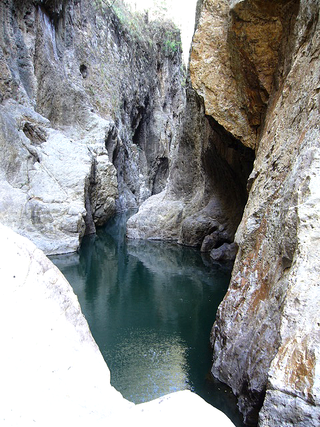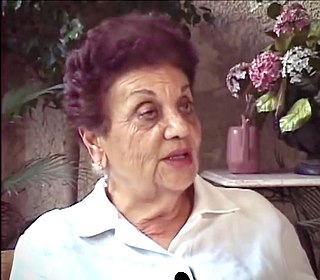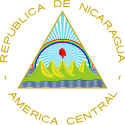
The National Assembly is the federal legislature of the Bolivarian Republic of Venezuela, which was first elected in 2000 under the 1999 constitution. It is a unicameral body made up of a variable number of members, who are elected by a "universal, direct, personal, and secret" vote partly by direct election in state-based voting districts, and partly on a state-based party-list proportional representation system.

The National Assembly of Panama, formerly the Legislative Assembly of Panama(Asamblea Legislativa de Panamá), is the legislative branch of the government of the Republic of Panama.

The National Assembly is the legislative branch of the government of Nicaragua founded in January 1985.

The Chamber of Deputies is the lower house of the Parliament of Equatorial Guinea.

The General Assembly of Uruguay is the bicameral legislature of the government of Uruguay, and consists of two chambers: the Chamber of Senators and the Chamber of Representatives. General Assembly has 130 voting members: 99 representatives and 30 senators, the Vice President of the Republic, who serves as President of the General Assembly, and the Senate has the right to vote. The legislature meets in the Legislative Palace in Montevideo. Both senators and representatives are chosen through proportional representation for five-year terms.

Lesbian, gay, bisexual, transgender, and queer (LGBTQ) people in Nicaragua face legal challenges not experienced by non-LGBTQ residents. Both male and female types of same-sex sexual activity are legal in Nicaragua. Discrimination based on sexual orientation is banned in certain areas, including in employment and access to health services.

Somoto Canyon National Monument is a canyon located in the Madriz Department of Nicaragua. The Somoto Canyon National Monument protected area covers an area of approximately 170 hectares, of which 125 hectares are in the actual zone of the canyon.
Julia de la Cruz Mena Rivera is a Nicaraguan politician.

The President of the National Assembly is the presiding officer of the legislature of Ecuador. In 2009 the National Congress of Ecuador was replaced by the National Assembly. The position of President of the National Assembly has existed since then.
Óscar Moncada Reyes was a Nicaraguan politician. Moncada served as a member of the National Assembly for three consecutive terms from 1997 to 2011, including a tenure as the President of the National Assembly of Nicaragua from 1999 until 2001. He was the Vice President of the Constitutionalist Liberal Party (PLC) at the time of his death in 2014. Óscar Moncada was the son, from a second marriage, of former President of Nicaragua José María Moncada, who held office from 1929 to 1933.

On 5 July 2017, colectivos and supporters of President Nicolás Maduro stormed the Palacio Federal Legislativo on the Independence Day of Venezuela, assaulting many members of the opposition-led National Assembly. At least 12 opposition legislators and their staff were injured as a result of the attack.

Blanca Stella Aráuz Pineda is the first National Heroine of Nicaragua. She was noted as a telegraphist who assisted the guerrilla forces during the United States occupation of Nicaragua and who negotiated with President Juan Bautista Sacasa to gain amnesty for the rebels and negotiate peace at the end of the conflict.
Escuela Nacional de Bellas Artes is a national fine arts institution located in Managua, Nicaragua. It was founded in 1938 as an apprentice-base learning workshop. Curricula established to meet educational standards set by the government were implemented in 1979. In 1997, the legislature created the Pablo Antonio Cuadra Nicaraguan Center for Artistic Education to direct artistic education and development of Nicaraguan arts and established separate national schools for circus arts, dance, music, theater and visual arts.
Nicaragua does not currently recognise same-sex marriages or civil unions.

Miriam Argüello Morales was a politician from Nicaragua. A lawyer by training, she was the first woman to become president of the National Assembly of Nicaragua, where she served as a deputy for 22 years. She was elected Assembly president in 1990, defeating Alfredo César Aguirre though he had the support of Nicaraguan President Violeta Chamorro. However, César prevailed the following year, replacing Argüello in 1991.

The National Congress of Nicaragua was the legislature of Nicaragua before the Nicaraguan Revolution of 1979.

Héctor Rodríguez Castro is a Venezuelan lawyer and politician. He is currently the governor of Miranda.
The National Assembly sometimes also referred to in Spanish as Asamblea Nacional Consultiva was a corporative chamber in Spain created by the dictatorship of Primo de Rivera, charged with the task of drafting a new constitution. It was active from 1927 to 1929.
Nicaraguan nationality law is regulated by the Constitution, the General Law for Migration and Foreigners, Law No. 761 and relevant treaties to which Nicaragua is a signatory. These laws determine who is, or is eligible to be, a citizen of Nicaragua. The legal means to acquire nationality and formal membership in a nation differ from the relationship of rights and obligations between a national and the nation, known as citizenship. Nicaraguan nationality is typically obtained either on the principle of jus soli, i.e. by birth in Nicaragua; or under the rules of jus sanguinis, i.e. by birth abroad to a parent with Nicaraguan nationality. It can also be granted to a permanent resident who has lived in the country for a given period of time through naturalization or for a foreigner who has provided exceptional service to the nation.
This page is based on this
Wikipedia article Text is available under the
CC BY-SA 4.0 license; additional terms may apply.
Images, videos and audio are available under their respective licenses.













